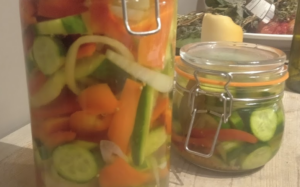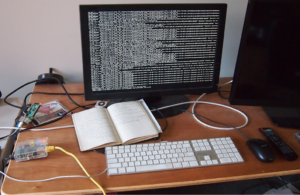 It’s interesting as AI starts to encroach on the physical world via it’s incorporation with Robots. The information that’s involved in moving an object, identifying it and being able to discuss it, it’s importance and also place it say in a structure that is visually pleasing or technically correct. That’s an incredible amount of information and a number of concepts. AI is starting to juggle all of this.
It’s interesting as AI starts to encroach on the physical world via it’s incorporation with Robots. The information that’s involved in moving an object, identifying it and being able to discuss it, it’s importance and also place it say in a structure that is visually pleasing or technically correct. That’s an incredible amount of information and a number of concepts. AI is starting to juggle all of this.
This whole thing of digitising the physical environment. I think AI is about to teach us a lot – and that we have a lot to learn about not just physical space – but what about when an AI can taste? Has the ability to identify any wine and any vintage? The ability to de construct a flavour, a chemical ,a smell.
Hook an AI up to machines that can perform Raman Spectroscopy, Infrared Spectroscopy, fluorescent microscopy and polarized light microscopy and you have the ultimate machine for the verification of historic paintings.
Then hook an AI up to a quantum computer and something like the James Web telescope. Also may be it can also help with us finally sorting out Nuclear fusion. Humanity is really on the cusp of something, I just hope we can make sure it works well for as many of us as possible.
And of course this morning I ran the question thru chat GPT 4 which replied with.
AI in Chemical Analysis
- IBM RoboRXN: This AI-driven platform helps in chemical synthesis and analysis. It uses natural language processing to interpret chemical procedures and executes them using automated lab equipment. Learn more about IBM RoboRXN here and here.
- DeepChem: An open-source toolkit developed to apply deep learning to the field of chemistry. It is used for tasks such as molecular property prediction, quantum chemistry, and bioactivity prediction. Check out DeepChem on GitHub.
- MoleculeNet: A benchmark suite for molecular machine learning, which provides various datasets for training AI models in chemical analysis. Explore MoleculeNet on its GitHub repository.
AI and Taste
- Gastrobots: These are robots designed to taste and analyze food. Researchers have developed AI systems integrated with electronic tongues to evaluate flavors and ingredients in food products.
- Project “Chefling” by IBM: This project uses AI to generate new recipes and analyze flavor profiles by understanding the chemistry of ingredients and their combinations. More about IBM’s AI initiatives can be found on their research blog.
AI and Smell
- Digital Olfaction: Companies like Aryballe are developing digital olfactory systems that use AI to identify and classify different smells. These systems have applications in quality control, environmental monitoring, and even in the food and beverage industry. More about Aryballe’s work can be found on their website.
- Google Brain’s Perfume Project: This initiative focuses on using machine learning to create new fragrances by understanding and predicting how different chemical combinations produce specific scents. More about Google’s AI research can be found on their AI blog.
AI in Pharmaceutical Chemistry
- Insilico Medicine: This company uses AI for drug discovery and design. It employs deep learning algorithms to predict the effectiveness and potential side effects of new compounds, accelerating the drug development process. Visit their website for more information.
- BenevolentAI: This project leverages AI to analyze vast amounts of biochemical data to identify new drug candidates and therapeutic targets. Learn more about their projects on their official site.

